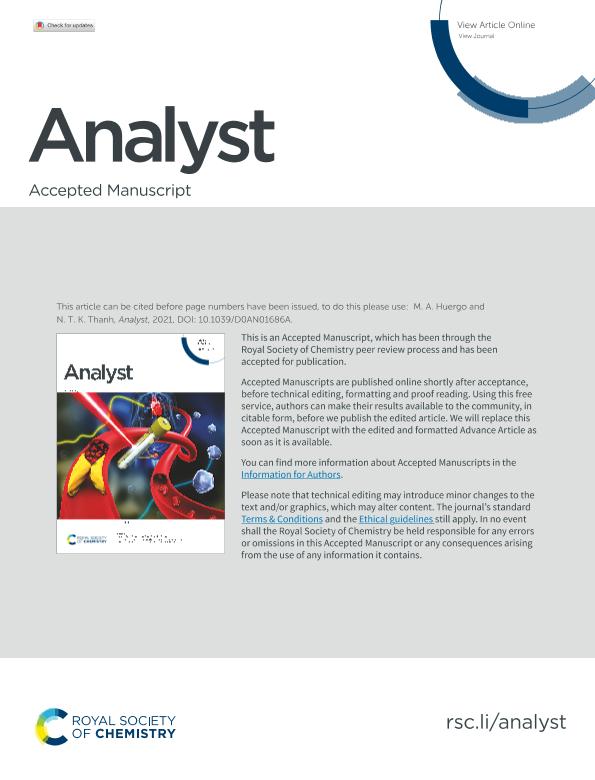Artículo
Current Advances on Diagnoses of COVID-19 and The Evaluation of Humoral Response
Fecha de publicación:
09/12/2020
Editorial:
Royal Society of Chemistry
Revista:
Analyst
ISSN:
0003-2654
Idioma:
Inglés
Tipo de recurso:
Artículo publicado
Clasificación temática:
Resumen
The new outbreak caused by coronavirus SARS-CoV-2 started at the end of 2019 and was declared pandemic in March 2020. Since then, several diagnostic methods have been re-adapted and also improved from previous detections of SARS and MERS coronavirus. The best strategy to handle this situation seems to rely on a triad of detection methods: i) highly sensitive and specific techniques as gold standard method, ii) easier and faster point of care tests accessible for largepopulation screening and iii) serology assays to complement the direct detection and to use for surveillance. In this review, we assessed the techniques and tests described in literature, their advantages and disadvantages and the interpretation of results. Quantitative reverse transcription polymerase chain reaction (RT-qPCR) is undoubtedly the gold standard technique utilized not only for diagnostic but also as standard for comparison and validation of newer approaches. Other nucleic acid amplification methods have shown to be adequate as point of care (POC) diagnostic tests with similar performance as RT-qPCR. The analysis of seroconversion with immunotests shows the complexity of the immune response to COVID-19. The detection of antibodies anti-SARS-CoV-2 can also help to detect previously infected asymptomatic individuals with negative RT-qPCR test. Nevertheless, more controlled serology cohort studies should be performed as soon as possible to understand the immune response to SARS-CoV-2.
Palabras clave:
SARS-COV-2
,
COVID-19
,
DIAGNOSES
,
IMMUNE RESPONSE
,
POINT OF CARE
Archivos asociados
Licencia
Identificadores
Colecciones
Articulos(INIFTA)
Articulos de INST.DE INV.FISICOQUIMICAS TEORICAS Y APLIC.
Articulos de INST.DE INV.FISICOQUIMICAS TEORICAS Y APLIC.
Citación
Huergo, María Ana Cristina; Thanh, Nguyen Thi Kim; Current Advances on Diagnoses of COVID-19 and The Evaluation of Humoral Response; Royal Society of Chemistry; Analyst; 2020; 9-12-2020; 1-23
Compartir
Altmétricas




